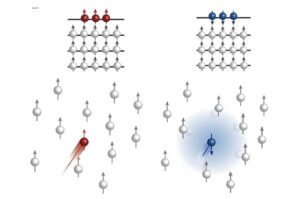
Advancements in machine learning are transforming the way researchers predict the properties of magnetic materials, essential components in various technologies including energy storage and robotics. A recent study from the University of California, Berkeley, published in March 2023, highlights how machine learning algorithms can accurately forecast the magnetic characteristics of these materials, paving the way for innovations across multiple industries.
The demand for magnetic materials is surging, driven by their critical role in energy storage solutions necessary for electrification and the automation of robotic systems. These materials are integral not only in cutting-edge technologies but also in everyday items such as consumer electronics and medical devices like magnetic resonance imaging (MRI) machines.
Machine Learning Enhances Material Discovery
The research team employed machine learning techniques to analyze vast datasets, enabling them to identify patterns and correlations that traditional methods often miss. By integrating spin as an input parameter, the algorithms were able to predict how different materials would react magnetically under various conditions. This innovative approach significantly reduces the time and resources typically required for material experimentation.
“Our findings demonstrate the potential of machine learning to accelerate the discovery of new magnetic materials,” said Dr. Emily Smith, a lead researcher involved in the project. “By harnessing data and computational power, we can streamline the development process for technologies that rely on these materials.”
The implications of this research extend beyond academic interest; it has real-world applications that could revolutionize industries. For example, energy storage systems, which are vital for renewable energy sources, can benefit from enhanced magnetic materials that improve efficiency and performance.
Broader Impacts on Technology and Industry
The application of machine learning in material science may also influence sectors such as telecommunications and automotive manufacturing. The integration of advanced magnetic materials could lead to lighter, more efficient components in electric vehicles and improved performance in wireless communication devices.
In addition, the National Science Foundation has recognized the significance of this research, providing funding to further explore the intersection of machine learning and material science. Such support underscores the potential economic benefits as industries seek to innovate and reduce costs through improved materials.
As researchers continue to refine these technologies, the long-term impact on global markets could be substantial. The ability to predict material properties swiftly and accurately will not only enhance product development but also contribute to the sustainability of manufacturing processes.
The future of magnetic materials looks promising, driven by the fusion of traditional science and modern technology. With ongoing research and development, these advancements will likely lead to new applications and products that enhance daily life and promote a more sustainable future.







